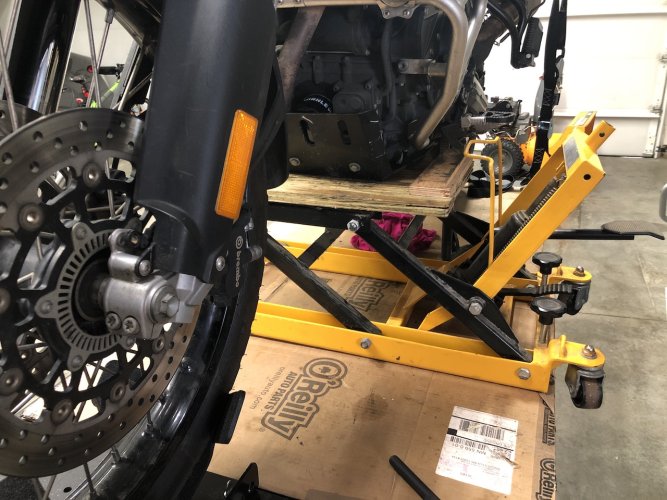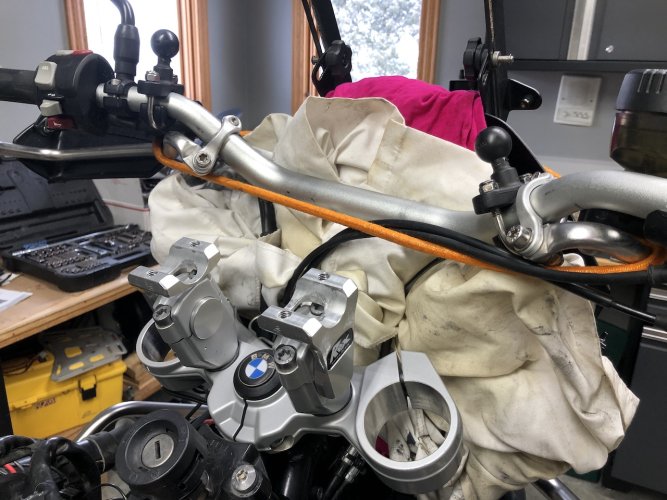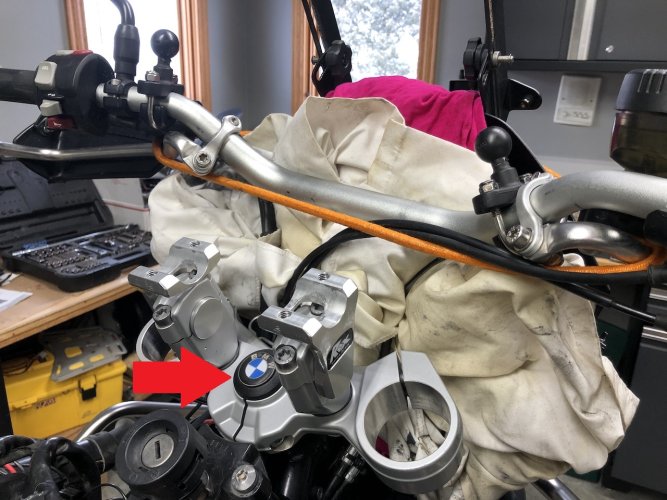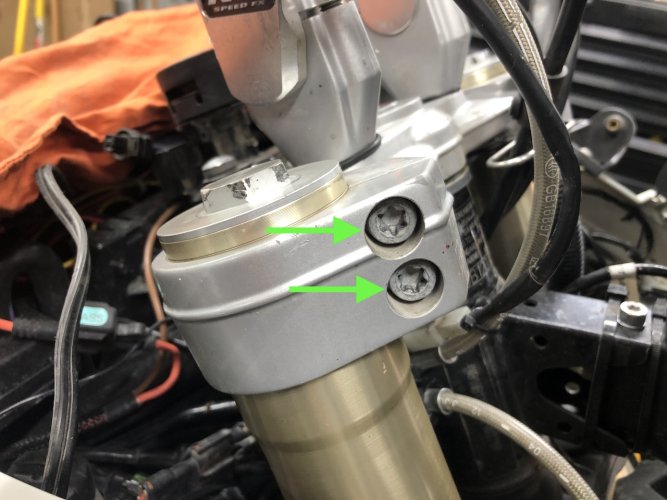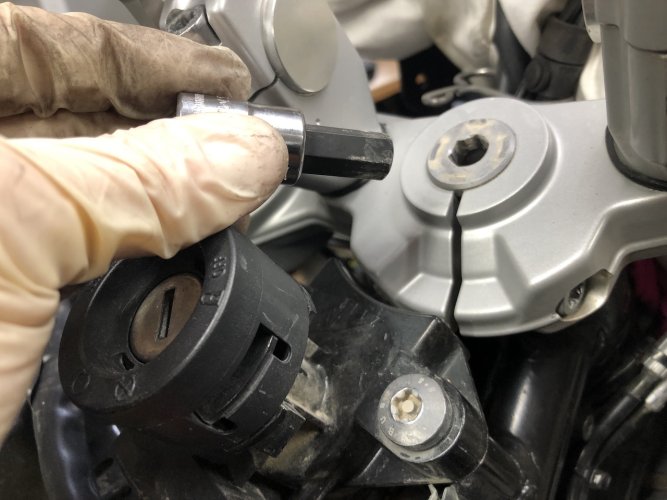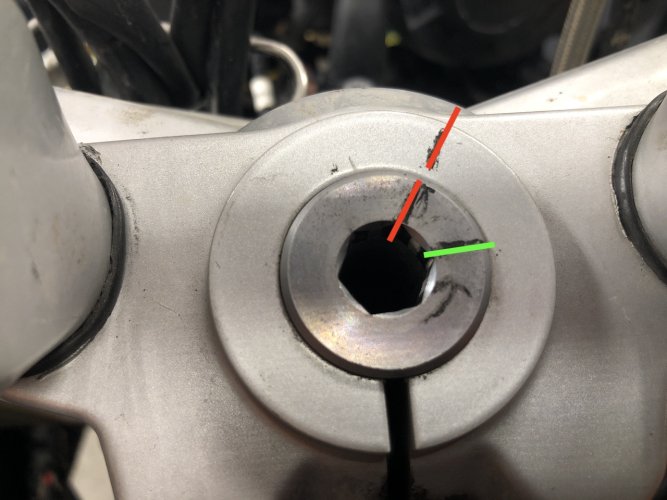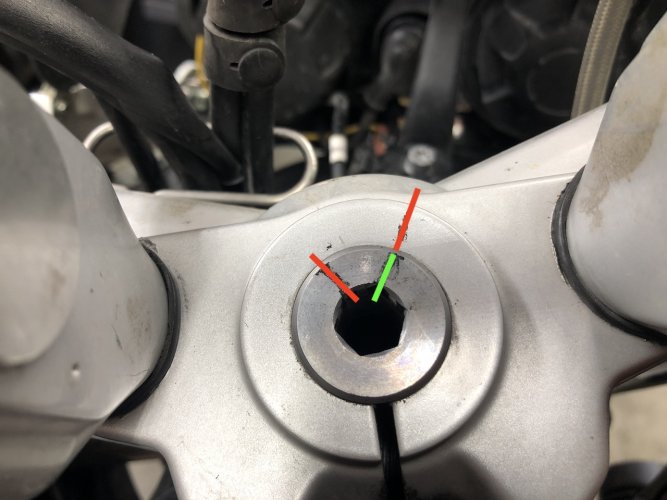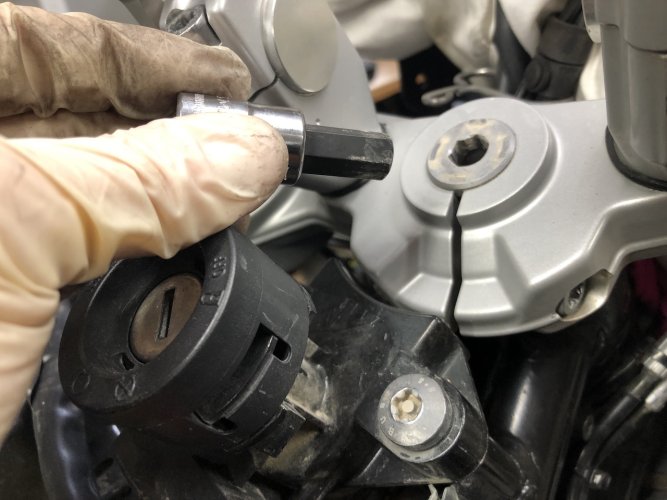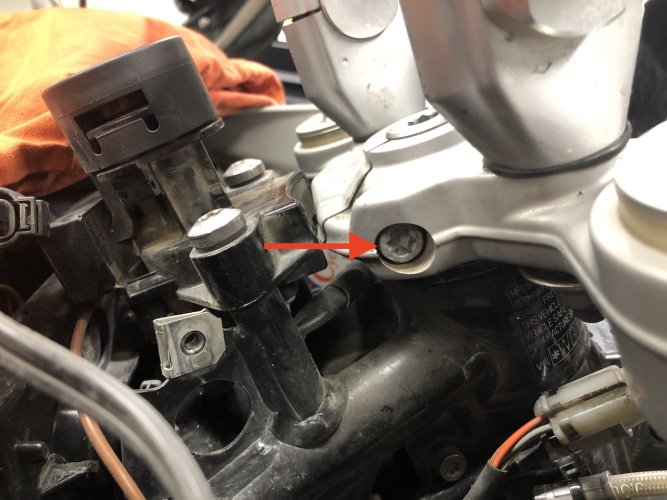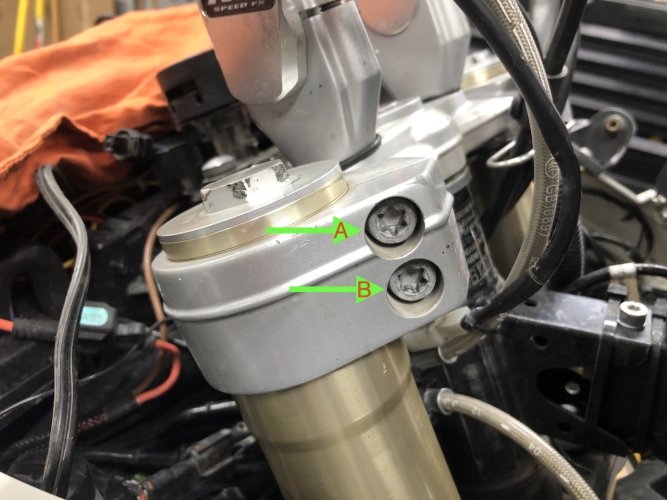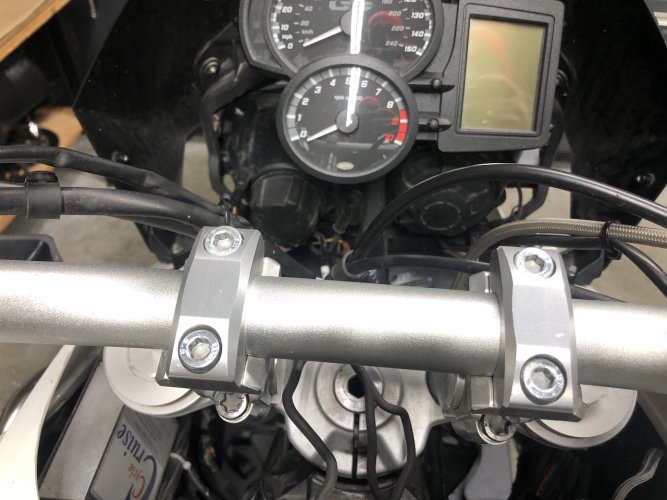The articles, posts and comments in this tech section are posted by individual members and reflect their personal thoughts and experiences with repairing, maintaining, and generally working on motorcycles. This information may require specific knowledge and skills, may or may not be correct or current to model.
The authors of information found here and the BMW MOA take no responsibility for ensuring the accuracy of any information (including procedures, techniques, parts numbers, torque values, tool usage, etc.), or further for any damage of any kind or injuries incurred or caused by anyone following the instructions or information found here.
It is the duty of the individual to either assume the liability himself for responsibly using the information found here, or to take the bike or accessory to a Dealer or other qualified professional service.
Please ensure you dispose of your used chemicals, oils and fuels in an environmentally responsible manner. Most Auto Parts stores and service stations will accept used oil and lubricants, tires and batteries, please check for your local availability. Here's a link where you can look up a place to dispose of your used fluids (oil, coolant, brake fluid, etc.) - http://earth911.com/
This article, text and photos are Copyright of the individual authors and the BMW MOA, any copying or redistributing is permitted only by prior written authorization.
PLEASE PRINT AND READ ALL THE INSTRUCTIONS BEFORE BEGINNING!
Final note: When in doubt, take your motorcycle to a reputable dealer.
------------------------------------------------------------------------------------------------------------------------------------------------------------------------------------
Adjusting the steering head bearings on your BMW F800GS
Making sure that you have the appropriate load on the steering head bearings allows for smooth steering and long bearing life. If the bearings are too tight, it's difficult to steer the motorcycle. If they are too loose, then you run the risk of ruining the bearings prematurely.
To check if your bearings are loose:
1. Raise the the front wheel off the ground, and grab the forks on the lower end of the bronze fork tubes (about midway up the fork tubes)
2. Rock the forks back and forth as if you were rolling the front wheel back and forth.
If you hear and feel a lot of clunking, then the bearings need attention.
To check for worn bearings:
1. Raise the the front wheel off the ground
2. Turn the handle bars side to side from one stop all the way to the other stop
If you feel a catch where they handlebars suddenly stop and don't want to move freely, you need new steering head bearings as the bearing cup has a groove worn into it.
Motorcyclists Magazine has a very nice video that covers how to check your steering head bearings
Note 1: The specific bike shown is a 2013 F800GS
Note 2: The tools and materials used are by personal choice and are not due to any affiliation with any brand
Tools Required:
- T45 star (Torx) bit
- 10mm hex socket
- Ratchet(s) that fit the above
- Torque wrench
- Suitable way to raise the front wheel and keep the bike steady
The authors of information found here and the BMW MOA take no responsibility for ensuring the accuracy of any information (including procedures, techniques, parts numbers, torque values, tool usage, etc.), or further for any damage of any kind or injuries incurred or caused by anyone following the instructions or information found here.
It is the duty of the individual to either assume the liability himself for responsibly using the information found here, or to take the bike or accessory to a Dealer or other qualified professional service.
Please ensure you dispose of your used chemicals, oils and fuels in an environmentally responsible manner. Most Auto Parts stores and service stations will accept used oil and lubricants, tires and batteries, please check for your local availability. Here's a link where you can look up a place to dispose of your used fluids (oil, coolant, brake fluid, etc.) - http://earth911.com/
This article, text and photos are Copyright of the individual authors and the BMW MOA, any copying or redistributing is permitted only by prior written authorization.
PLEASE PRINT AND READ ALL THE INSTRUCTIONS BEFORE BEGINNING!
Final note: When in doubt, take your motorcycle to a reputable dealer.
------------------------------------------------------------------------------------------------------------------------------------------------------------------------------------
Adjusting the steering head bearings on your BMW F800GS
Making sure that you have the appropriate load on the steering head bearings allows for smooth steering and long bearing life. If the bearings are too tight, it's difficult to steer the motorcycle. If they are too loose, then you run the risk of ruining the bearings prematurely.
To check if your bearings are loose:
1. Raise the the front wheel off the ground, and grab the forks on the lower end of the bronze fork tubes (about midway up the fork tubes)
2. Rock the forks back and forth as if you were rolling the front wheel back and forth.
If you hear and feel a lot of clunking, then the bearings need attention.
To check for worn bearings:
1. Raise the the front wheel off the ground
2. Turn the handle bars side to side from one stop all the way to the other stop
If you feel a catch where they handlebars suddenly stop and don't want to move freely, you need new steering head bearings as the bearing cup has a groove worn into it.
Motorcyclists Magazine has a very nice video that covers how to check your steering head bearings
Note 1: The specific bike shown is a 2013 F800GS
Note 2: The tools and materials used are by personal choice and are not due to any affiliation with any brand
Tools Required:
- T45 star (Torx) bit
- 10mm hex socket
- Ratchet(s) that fit the above
- Torque wrench
- Suitable way to raise the front wheel and keep the bike steady
Last edited:

